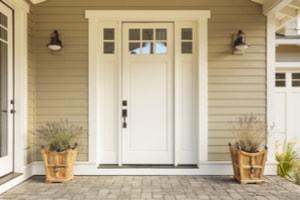Many Housing Options Available During Divorce
 Choosing where you will live is one of your most immediate concerns when you file for divorce but also one of the most consequential decisions you will make. The spouse who lives in the marital home will have an advantage when deciding who will keep the home during the division of property. When there are children involved, it is logical for the primary parent to stay in the home with the children. Absent children, you have more flexibility in deciding your living arrangements. Each option has its own financial and practical implications.
Choosing where you will live is one of your most immediate concerns when you file for divorce but also one of the most consequential decisions you will make. The spouse who lives in the marital home will have an advantage when deciding who will keep the home during the division of property. When there are children involved, it is logical for the primary parent to stay in the home with the children. Absent children, you have more flexibility in deciding your living arrangements. Each option has its own financial and practical implications.
Keeping the Home
The instinct of many divorcees is to try to stay in the marital home and retain possession of it after divorce. The home is likely the most valuable property in your marriage and something you have greatly invested in. There is also an emotional benefit to keeping some stability in your living situation while going through a turbulent divorce. However, owning the home without your spouse can be expensive. You must consider whether you can afford:
- Mortgage payments;
- Utilities;
- Property taxes; and
- Home maintenance and upkeep.
Sharing the Home
Some spouses save money by continuing to live together during the divorce and dividing the household expenses. In this scenario, each of you would carve out your own personal spaces within the home and minimize interaction. The only way this option will work is if you are going through an amicable and cooperative divorce. You may have to prove that you are living separately within the same home to complete the divorce. You should also consider whether you want your living situation to be financially tied to your spouse during the divorce.
Buying a New Home
Some divorcees are eager enough to start over with their lives that they purchase a new home before the divorce is complete. This is a financially risky move because of the numerous costs involved in buying a home. You do not yet know how much money and assets you will retain after the divorce. You may also be responsible for monthly support payments to your spouse.
Renting
A temporary living situation is most practical if you are not staying in your marital home during the divorce. Renting a house or apartment is cheaper than buying a home and does not tie you into a long-term investment. After the divorce is completed, you will have the freedom to relocate.
Home Options
Keeping your marital home can be a victory during your divorce negotiations, but there are also financial benefits to foregoing ownership or agreeing to sell it. A Kane County divorce attorney at Goostree Law Group can discuss your options related to your home. To schedule a free consultation, call 630-584-4800.
Source:
https://www.herwealth.com/blog/deciding-where-live-during-after-divorce











